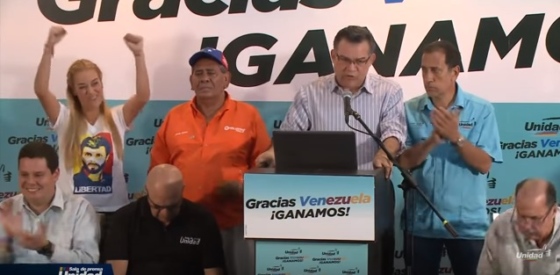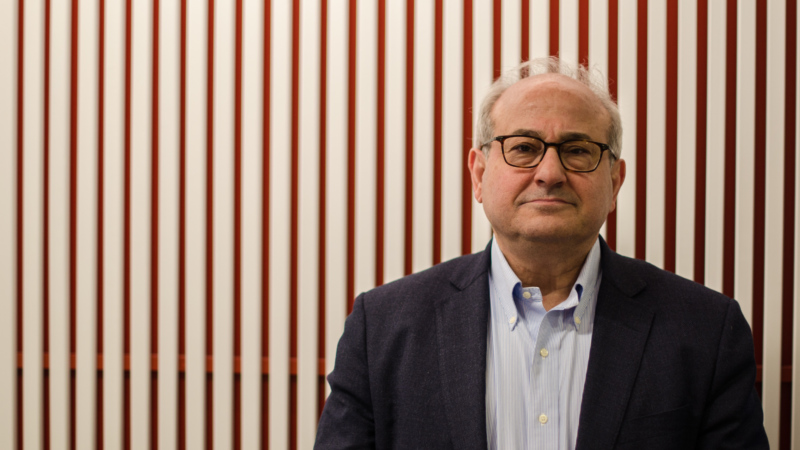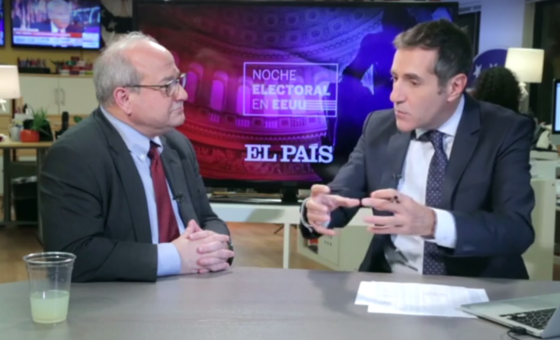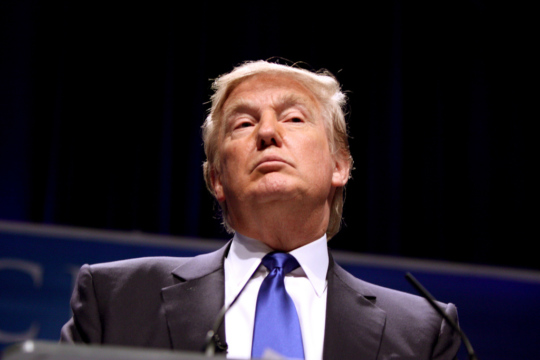
What Does the Future Hold for Venezuela?
What do the election results mean for President Nicolás Maduro and his grip on the presidency?
Michael Shifter, president of the Inter-American Dialogue, was interviewed for Background Briefing with Ian Masters, where he discussed topics such as the repercussions of the crisis in Venezuela for American politics, the role of the United States in fostering a democratic transition in Venezuela, and possible outcomes for the crisis.
“It is not unusual for there to be a strong dose of domestic politics in the US’ approach to the region. We see that on drugs, migration, trade and everything else. This is also domestic politics - Trump’s speech on President’s Day was like a campaign rally. They played the music they play at campaign events, he had an adoring crowd, and he is clearly trying to use this for the campaign to say that if the socialists in the democratic party prevail in 2020 we are going to end up like Venezuela. […] The crowd was largely Cuban-American and Venezuelan. […] I do not believe that if he wants to get the Latino vote this will make a dent on it whatsoever, this is a very special situation.”
“This is politics and Trump is trying to take advantage of Venezuela’s horror for his own political advantage.”
“The narrative right now is [for the Democrats] to say that the Venezuelan crisis is not 'socialism', but somebody who is largely corrupt and criminal, and that this is not an ideological question. This is an incompetent government that has presided over the destruction of the country.”
“Trump is generally on the right side of this issue because Maduro has really caused tremendous suffering and an unprecedented refugee crisis in the Western Hemisphere. But clearly, the Democrats want to distance themselves from this kind of rhetoric and this kind of tactic that is very aggressive.”
“I think Rubio, Bolton, and others [in the Trump administration] really believed that Maduro would have already collapsed. […] I think they underestimated Maduro’s resilience and the resistance of the senior military officials.”
“I am not sure there is a plan B. If this continues for another couple of months the sanctions that are being applied in Venezuela will have a devastating impact on the humanitarian situation.”
“The talk of military intervention is counterproductive and could lead to the military becoming more loyal to Maduro. […] The Latin American governments that are joining the Trump administration in applying pressure on Maduro are extremely uneasy and reject completely the possibility of military intervention. The risk is that they will lose the support of the Latin American governments that have been with them so far.”
“You have to move from the current situation of having an illegitimate president that is not recognized by more than sixty countries to a transition situation. I am not sure if a coup is the way to go but there needs to be a transition. My view is that there should be a negotiation with the armed forces to give them some protections and some guarantees and that this takes a while to work out. […] That would not be a coup, it would be a worked-out transition which we have seen in other countries.”
“I don’t think there is any possibility that this aid is going to make a dent in the humanitarian crisis, this is all political theater and symbols and trying to send messages and change behaviors but this is not a serious effort to alleviate the crisis - that will require a political change.”
What do the election results mean for President Nicolás Maduro and his grip on the presidency?
Michael Shifter es entrevistado por Carlos de Vega, periodista para El País, en la noche de las elecciones presidenciales en EEUU. Con unos resultados cada vez más evidentes hacia la victoria de Donald Trump, Michael y Carlos analizan las razones de su éxito, las posibles políticas de Trump en la Casa Blanca y lo que se puede esperar de este presidente electo para América Latina.
Will President-elect Trump shatter America’s most important bilateral relationship?
 Francisco Arteaga
Francisco Arteaga

